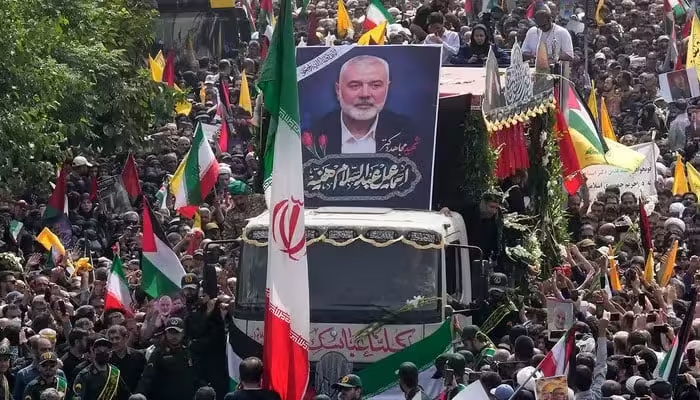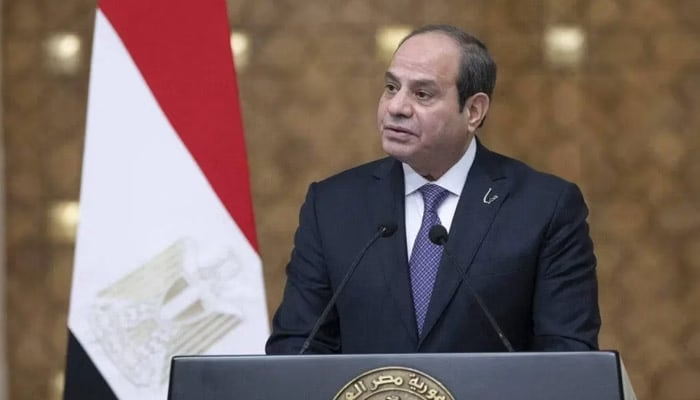Iran has detained several intelligence and military officers as part of its investigation into the assassination of Hamas leader Ismail Haniyeh. This move comes after Haniyeh was killed in a missile attack in Tehran on July 31, during his visit to attend the swearing-in ceremony of Iranian President Masoud Al-Badishian. The assassination has raised significant security concerns and questions within Iran, prompting a thorough investigation by a special intelligence team from Iran’s Revolutionary Guards.
Investigation Details
According to a report from the American newspaper, The New York Times, Iranian military sources revealed that, in addition to intelligence and military officers, employees of the guest house where Ismail Haniyeh was staying have also been detained. These actions underscore the seriousness with which Iranian authorities are treating the investigation. The special intelligence team of the Revolutionary Guards is meticulously examining all possible leads and suspects to unravel the circumstances surrounding the assassination.
Security Concerns and Repercussions
The assassination of Ismail Haniyeh in Tehran is a major security breach and has posed a significant challenge to Iran’s internal security apparatus. The fact that such a high-profile assassination could occur in the heart of Tehran has led to intense scrutiny and criticism of the country’s security measures. This incident has not only affected Iran’s reputation but also highlighted vulnerabilities within its security framework.
Reactions and Allegations
Iranian Intelligence Minister made a sensational claim that Israel orchestrated the assassination of Ismail Haniyeh with the consent of the United States. These allegations have further complicated the geopolitical landscape and intensified tensions between Iran and Israel. A British newspaper reported that the Israeli intelligence agency, Mossad, allegedly used Iranian agents to carry out the assassination, adding another layer of complexity to the investigation.
Iranian officials have vowed to take revenge for the assassination of Haniyeh, considering it a significant loss for the Palestinian freedom movement. Haniyeh’s death is seen as a major blow to Hamas, the Palestinian militant organization that he led. The assassination has been viewed as an attempt to weaken the Palestinian resistance and its leadership.
Conflicting Reports and Speculations
Initial reports about Haniyeh’s assassination were conflicting. Foreign media first reported that Haniyeh had been killed in a missile attack, with his presence reportedly tracked by Israel using WhatsApp spyware. There were also claims that a bomb had been planted in Haniyeh’s room by Israeli agents with the help of Iranian operatives. These conflicting reports have made the investigation more challenging, as authorities sift through various leads and pieces of evidence.
Iran has reportedly gathered photographs and other evidence implicating Iranian agents in the assassination. This has led to an extensive internal investigation to identify and apprehend those responsible. The involvement of Iranian agents, if proven true, would signify a significant breach within Iran’s security and intelligence community.
Implications for Iran and the Region
The assassination of Ismail Haniyeh has far-reaching implications for Iran and the broader Middle East region. It has exposed potential weaknesses in Iran’s security infrastructure and has prompted a re-evaluation of internal security protocols. For the Palestinian resistance movement, the loss of Haniyeh is a severe setback, and it remains to be seen how Hamas will respond to this challenge.
Moreover, the incident has heightened tensions between Iran and Israel, with the potential to escalate into further conflicts or retaliatory actions. The involvement of external actors, such as the alleged use of WhatsApp spyware and Iranian agents, adds an international dimension to the incident, drawing in global attention and concern.
As the investigation into Ismail Haniyeh’s assassination continues, Iran is determined to identify and punish those responsible. The detainment of intelligence and military officers, along with guest house employees, marks a significant step in this direction. The incident has exposed vulnerabilities in Iran’s security system and has intensified regional tensions. The outcome of this investigation will have profound implications for Iran, the Palestinian resistance movement, and the broader geopolitical dynamics of the Middle East.



